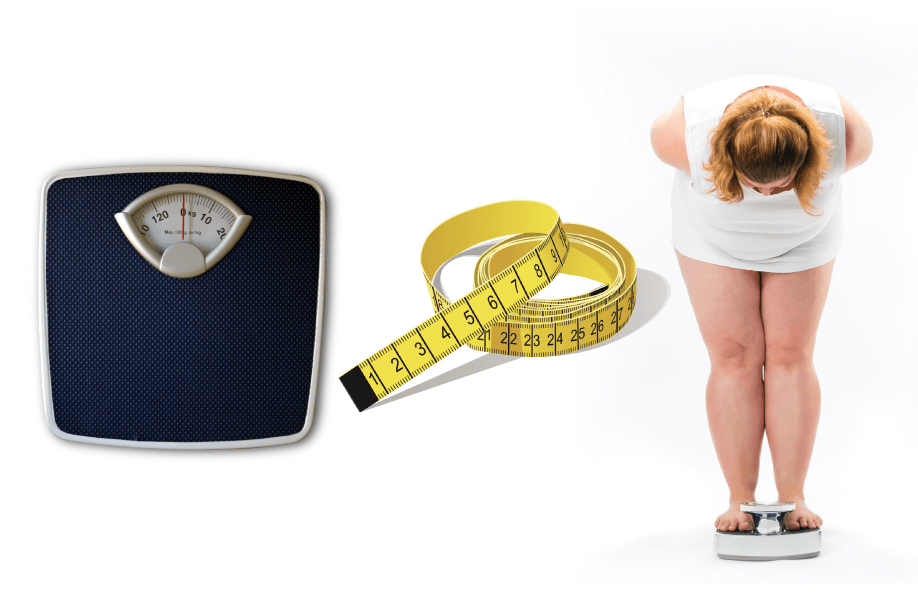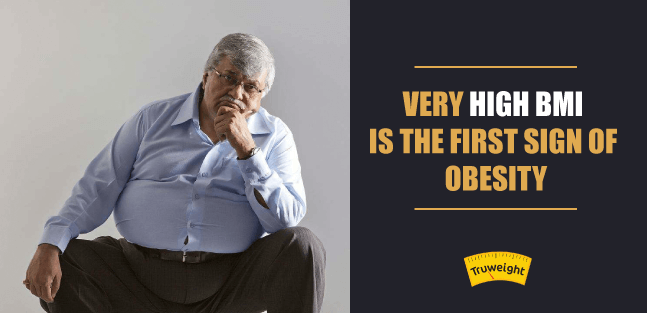Disease, Health, Weight Loss
Know the signs and symptoms of obesity!
Many people are curious as to what is obesity, as they want to understand whether they are obese. It is simple to learn what is obesity definition, simply means having too much body fat. Medically this means that your body fat is very high in proportion to muscles, bones, and other components.
Merely calling it a disorder ignores the fact that obesity can be an indication of serious lifelong problems, making it a disease.
In 2016, over 250 million adults worldwide were obese. Since 1975, that is a threefold increase in worldwide obesity! Childhood obesity is also rapidly increasing. The USA has already declared an obesity epidemic but the epidemic is actually worldwide. Read on to learn what is obesity and its causes.
Table Of Contents:
- Obesity and Its Causes?
- Check If You Are Obese
- A Healthier Lifestyle For A Healthier You
- Frequently Asked Questions
Learn what is obesity and its causes here:
The causes of obesity are complex and even the medical community has not figured out the exact causes yet.
- A combination of factors, such as whether your family generally tends to gain weight, whether or not fresh food is easily and cheaply available where you live, the increasing cost of fresh fruits in many places, and lack of time for exercise are some of the many factors that may contribute to obesity.
- Obesity is also linked to many lifestyle diseases such as heart problems, Type 2 diabetes, osteoarthritis, and others. Doctors usually advise weight loss in such cases. In fact, even a modest amount of physical activity or healthier eating can help bring down your risk of lifestyle diseases.
- It often leads to the gathering of fatty deposits around your arteries, which may lead to heart problems.
- It is not well-understood what causes obesity in an individual, although difficulty with diet, poor sleep, and lacking time for exercise are typical problems in today’s society. Avoiding foods that cause obesity and having a healthier diet can be a good step forward.
Check your symptoms to ensure you are not obese and take a free consultation on how to lose weight if you need it. Source: Pexels
How to check if you are obese?
1. Use BMI to measure if you are obese or not
The ideal way to check for obesity is to calculate body fat percentage. Many people want to know what the weight is, for someone to be considered obese, but a simple measurement of weight will be inaccurate.

BMI is somewhat helpful but has the problem that it ignores the distribution of fat in relation to muscle and water weight and is intended for use at a population level.
Belly fat has been linked to higher chances of obesity and consequently lifestyle diseases. There are body fat scales and monitors which use electrical currents, as well as fat calipers. A doctor’s visit can help you get an idea of whether you should be worried or not.
BMI can offer a more general outlook for those who cannot measure their body fat. If you feel you are at risk for obesity, check your BMI at TruWeight now.
Signs or Symptom |
Chances of Obesity |
| Adults whose BMI is between 25-29.9 kg/m² | Pre-obese |
| Adults whose BMI is at or above 30 kg/m² | Obese |
| Women whose waist measurement is less than 35 inches but BMI is greater than 30 kg/m² | At risk of obesity |
| Men whose waist measurement is less than 40 inches around the waist but BMI is greater than 30 kg/m² | At risk of obesity |
| Women whose waist measurement is more than 35 inches | Obese |
| Men whose waist measurement is more than 40 inches around the waist | Obese |
| Body fat percentage of less than 25% for women | Not obese |
| Body fat percentage of less than 17% for men | Not obese |
| Body fat percentage of more than 31% for women | Obese |
| Body fat percentage of more than 31% for women | Obese |
2. Pulse Rate Measurement
If you measure your resting pulse and find that it is unusually high then you might be obese. To take your pulse, you should check with your index and third finger on your wrist or your throat. If on your wrist, check with your fingers between the bone and tendon on the side of the thumb. On your throat, just check to the side of the windpipe.
Calculate the number of beats for 15 seconds and multiply by 4. This value should be between 60 and 100 to be healthy. If it is on the lower side then that indicates a healthier, fitter heart. This is, as well as some other conditions, forces the heart to work harder, which is why a higher value indicates decreasing health, and values above 100 indicate either obesity or some health problem.
3. Fatigue
Your body is carrying more weight and doing more work, therefore getting tired also. Moreover, It is linked to disturbed sleep. Disturbed sleep is found to be a risk factor for obesity, but the link also works the other way.
Due to this, obesity patients are usually more tired and cannot cope with sudden physical activity. While not everyone with obesity will have the exact same symptoms, it is valuable to note for yourself whether you are also suffering from problems with snoring, excess sweating, and breathlessness.
Those who fear that they are suffering from obesity and who would like to become healthier should consider a gentle exercise program along with a healthy diet. A sudden increase to a high level of exercise from a sedentary lifestyle is not recommended, because it may strain the joints or the muscles and cause damage. Source
4. Joint and Back Pain
People with consistent joint and back pain and weight gain should consider whether reducing their weight could help their pain. It hasn’t been studied enough for doctors to understand exactly why, but the link between obesity and chronic pain is clear.
This link may be due to the strain of your joints carrying too much weight, and your muscles being underdeveloped in comparison. It is known that a reduction in weight can often help reduce back and joint pain for those suffering from it.
Patients suffering from back pain should also consider visiting a doctor because it is possible that obesity has contributed to them developing a herniated disc or pinched nerves. Some patients may even require surgery.
A Healthier Lifestyle For A Healthier You
Now that you know what is obesity, note that there are many symptoms of obesity, like joint and back pain, fatigue, high belly fat or BMI. The causes of obesity are not always easy to identify, but a good diet and regular exercise will help in weight loss to combat obesity.
There are plenty of great diet charts available right here at TruWeight for those who would like to overhaul their life and eat well. Many people do not even know about superfoods which are high in energy but low in fat.
A good diet plan which offers plenty of energy-giving foods for fewer calories can change your life when it comes to health.
Register now at TruWeight and take the free weight loss consultation!
Frequently Asked Questions
1. How does childhood obesity affect you?
Children who are obese at a young age usually continue to be obese as adults and may develop one or many health problems including insulin resistance, cardiovascular diseases, and others.
2. How to combat childhood obesity?
It is important not to restrict food for children, as children will continue to grow for a long time and they require a lot of food.
Worrying about their weight will impact them negatively and may have a worse effect on their overall health. Instead, they should be encouraged to be active and given plenty of nourishing food that is tasty, and junk food should be limited in the house so that they do not have access.
3. Are obese people at risk of early death?
Obese people are more at risk for certain illnesses such as diabetes and cardiovascular diseases, which may lead to a reduced quality of life or lifespan.
4. What should a weight loss program provide?
A useful weight-loss program would involve scientifically-proven methods of exercise, a nutritious and healthy diet and a lifestyle that would work in the long-term to help patients reach and maintain a healthy weight, with regular follow-ups.
5. Can I use medication or a special diet?
What sort of medications or diet plans should be used depending on your personal health status. Most trained dieticians and other nutritionists always recommend natural ways, at least at first, as they are easier to maintain. Discuss your situation with our weight loss consultant to know the best plan for you.
Talk to our expert Possible Nutritionist for more information and guidance. The first consultation is on us. Click here to avail.

Hey, i really love this articles thanks. I’m 27 years old and i’m thinking of losing weight. I keep reading reviews about it and it looks legitimate but i can’t make up my mind , i just want to know if this is going to be beneficent for me
Thanks
Hi Kurt! Thank you for liking our article. We help you in losing weight in natural way, kindly follow the provided link or call on toll free number 18001021255 to speak to the concerned team. https://truweight.in/blog/food-and-nutrition/indian-diet-plan-weight-loss-4-weeks.html